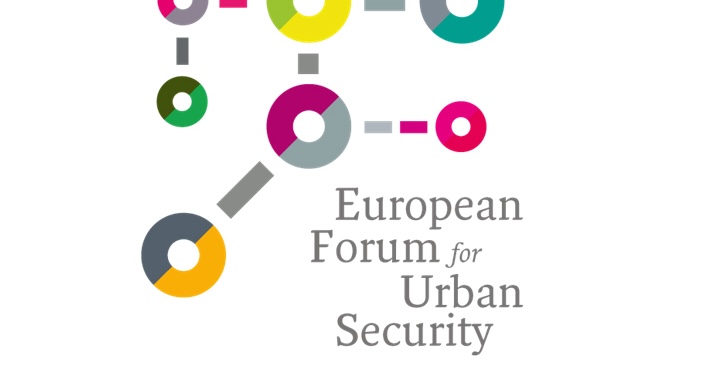July 2025 – Reflecting our member local and regional authorities’ growing concerns, we have recently included mental health as a new area of work for the European Forum for Urban Security (Efus). As such, we are developing exchanges among our members across Europe, garnering knowledge and promoting initiatives to prevent or mitigate the impact of poor mental health on urban security.
New EU-funded project
We have also joined as partners a new EU-funded project, titled Respect to Protect, which seeks to train protection and security professionals to ensure dignified and respectful treatment of mental health problems.
The starting point of the project is the identified need for training among security and crime prevention actors to better prevent and respond to situations involving individuals with mental health issues, as the lack of adequate knowledge often leads to increased stigma, discrimination and social isolation of those affected. The project thus aims to ensure that these actors can address these situations with respect and dignity, while supporting their own mental well-being.
The wide impacts of poor mental health
Indeed, mental health problems have soared across Europe since the 2020 Covid pandemic, in particular (but not exclusively) among young people. The 2023 Flash Eurobarometer on mental health showed that 59% of people aged between 16 and 24 had an emotional or psychosocial problem – such as feeling depressed or anxious – in the previous 12 months.
This has a significant impact on public health, but also on the workforce and hence the economy, as well as on families, education, and urban security at large. Our member local and regional authorities tell us that they are often led to prevent or intervene in situations where mental health directly affects daily urban security. Indeed, this was one of the issues discussed at our 2024 Security, Democracy and Cities conference in Brussels, with a session devoted to mental health in public spaces.
People suffering from mental health issues are more at risk of being both perpetrators and victims of public disorder and crime. Furthermore, citizens who feel unsafe in their city are more prone to suffering from mental health problems.
According to the World Health Organisation (WHO):
- 1 in 6 people in Europe is living with a mental health condition.
- 1 in 3 people with a mental health condition does not receive the treatment they need.
- 1 in 4 people with psychosis receives no formal treatment or care at all.
- Over 150,000 people die by suicide each year – this is nearly 400 suicides every day.
- Suicide is the leading cause of death among young people aged 15–29.
- During the COVID-19 pandemic, the prevalence of anxiety and depression increased by 25% globally.
- Europe faces a critical shortage of health workers, especially mental health professionals.
- More than 1 in 10 (11%) adolescents show signs of problematic social media behaviour.
- A quarter of 15-year-old girls report being lonely most or all of the time.
- 1 in 4 older people aged over 60 reports being lonely.
A comprehensive, cross-sectoral approach
Faced with what the EU Commissioner for intergenerational fairness, youth, culture and sport, Glenn Micallef, calls the “silent crisis” of mental health, European institutions and national governments are drawing up plans to mobilise public services and civil society.
Thus in 2023, the European Commission adopted its first comprehensive, cross-sectoral approach to mental health as a pillar of the European Health Union. Under this approach, 20 flagship initiatives – supported by 1.23 billion euros – tackle the issue, which, it must be stressed, does not only affect young people but also other generations, notably the over-60s.
Mental health in all policies
The Committee of the Regions of the European Union, which represents Europe’s local and regional authorities, adopted in April an opinion on mental health acknowledging their important role in shaping the mental health landscape through the design and implementation of community-focused initiatives and recalling their support to the ‘mental health in all policies’ approach.European regions and cities stated that any action on mental health should be comprehensive and cross-sectoral, and that mental and physical health must be put on a par, financed accordingly and dealt with in a non-stigmatising manner. They also recalled that the EU Charter of Fundamental Rights guarantees both the right to receive medical treatment and the right to access preventive healthcare.
“Mental health must be a shared responsibility – embedded in our schools, our workplaces, our communities and every level of government. It belongs at the heart of all public policies.” Yannick Neuder, French Minister of Health and Access to Care
A priority of the French government
Earlier this year, the French government declared that mental health would be a national grande cause (great national cause) for 2025 as it has become “a major public health challenge given that one out of four French citizens will be confronted with a mental health issue in their lifetime.” The purpose of this initiative is to “lift taboos, improve access to health care and information, and strengthen prevention through actions led by the State and its partners.”
The World Health Organisation (WHO) held a summit in Paris, in June 2025, where representatives of 31 European countries called for mental health to be a key component of all national policy decisions. During the conference, the French Minister of Health and Access to Care, Dr Yannick Neuder, said that “mental health must be a shared responsibility – embedded in our schools, our workplaces, our communities and every level of government. With this summit, we are sending a clear message: mental health belongs at the heart of all public policies.”
Our recommendations to local and regional authorities
Reflecting on-going exchanges among our members, our 2025 Security, Democracy and Cities manifesto includes a series of recommendations on the issue of mental health, which revolve around the need to:
- raise awareness among the general population as well as local elected officials and decision-makers on the importance of good mental health and the link between mental health and urban security
- train all local security actors (local authority staff, local police, street mediators, local associations…)
- provide places for young people, such as youth clubs, where they can share their problems and be attended by professionals.
Initiatives by the French and Spanish Forums for Urban Security
Further proof of the growing importance of this issue in security policies, the French Forum for Urban Security (FFSU) regularly organises dedicated training sessions for local authority staff and has chosen the issue of mental health for its 2025 Crime Prevention Award, which rewards local initiatives to strengthen urban security.
Mental health was also one of the four key issues discussed at the annual conference of the Spanish Forum for Urban Security (FESU), in 2023.
Photo: The Thinker, Auguste Rodin, Rodin Museum, Paris ©iStock – davidf




